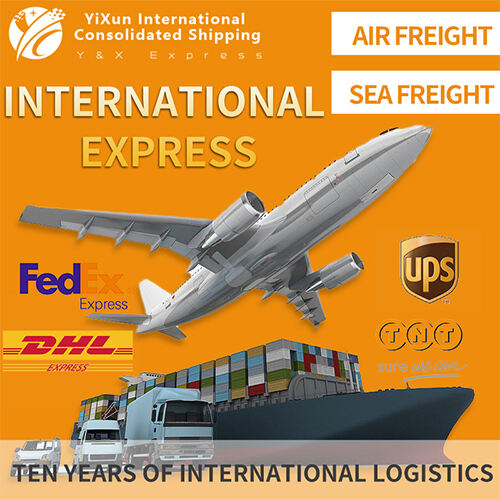Tavaroiden kuljetus perustasolla saattaa kuulostaa vähän monimutkaiselta monelle, erityisesti niille, jotka eivät ole yhtä tuttuja kansainvälisen laivanviljelyn alan kanssa. Jotta voit ymmärtää paremmin tavaroiden kuljetuksen käsitteitä, tässä artikkelissa vastataan joitakin yleisimpiin kysymyksiin. Artikkelin lopussa lukijat pitäisi osata ymmärtää, miten tavaroiden kuljetus toimii ja sen merkitys maailmanmarkkinoilla.
Mikä on kuljetusyhtiö?
Tavaroiden kuljetusvälittäjä voidaan pitää välittäjänä, joka työskentelee lähettäjän puolesta, tai henkilön / yrityksen puolesta, joka haluaa siirtää tavaransa tietyllä kuljetustavalla. Tällaiset asiantuntijat helpottavat tavaroiden kuljetusta yhtä paikkaa toiseen. On tärkeää ymmärtää, että heidän päätehtävänsä ei ole tavarojen fyysinen käsittely, vaan erilaisten palveluiden valvonta, jotka liittyvät toimituksiin niiden saapumiseksi loppupaikkaan mahdollisimman nopeasti ja edullisesti.
• Ohjaavat kuljetusprosessia yhdestä pisteestä toiseen
• Hankkivat muut kuljetus- ja vientiin liittyvät asiakirjat
• Tuotteiden seuranta ja kuljetus
Tavaroiden kuljetusvälitys: Miten se toimii?
On totta, että tavaroiden kuljetusvälitys sisältää useita vaiheita, ja tutustumalla niihin asiakas ymmärtää paremmin, mitä nämä asiantuntijat tarjoavat. Prosessi koostuu yleensä seuraavista vaiheista:
Tilauksen ja sopimuksen tekeminen: Lähettäjä lähettää hinnatilauksen kuljetusvälittäjälle. Välittäjä voi sitten antaa kustannusanalyysin koon, painon, määrämaan ja kuljetustavan perusteella.
Varaus ja dokumentointi: Kun neuvottelut on suoritettu, välittäjä varaa lastipaikan ja tuottaa viralliset asiakirjat, mukaan lukien ladullisuus, kaupallinen lasku ja pakkausluettelo.
Tullin hyväksyntä: Puolestaan kuljetusvälittäjä hoitaa tullitoimenpiteet sekä vientimaassa että vientimaassa. Tämä sisältää asian käsittelyn ja eteenpäin liittyvien asiakirjojen, kuten luvan, laskujen ja ladullisuuden, julkaisemisen, maksamalla mahdolliset vienti-/tuontimaksut, jos ne liittyvät lähetystään, ja vahvistamalla noudattaminen paikallisten lakeiden mukaisesti.
Toimitus ja seuranta: Välitysyritys tekee järjestelyt tavaroitten keräämiseksi sekä lahetukselle. Se välittää myös seurantatiedot, jotta sekä lähtevän kuin vastaanottajankin on tiedossa, mistä toimitus tulee.
Toimitus ja lopullinen päätös: Kun toimitus saapuu sopimuksen mukaiseen kohteeseen, välitysyritys järjestää lopullisen toimituksen hyötyjäsenelle ja varmistaa, että kaikki on kunnossa.
Miksi yritykset käyttävät rahdinkuljetusviranomaisia?
Kuuntele suojelijan sanaa: yritykset valitsevat rahdinkuljetusviranomaiset heidän tietoutensa ja tehokkuutensa vuoksi alalla. Tässä on joitakin syitä, miksi he ovat arvokkaita:
Ammattitaito: Rahdinkuljetusviranomaiset tuntee kansainvälisen kaupankäynnin monimutkaisuuden ja liittyvät tullivaatimukset, jotka voivat olla hankaloja käyttäjille.
Aikaa säästetty: Lähetysten seurannan hoitaminen voi olla erittäin vaativa. Tämän tehtävän ulkopuolistaminen voi tuoda suuria etuja, koska se vapauttaa yritykset tehtävistä, jotka eivät ole keskeisiä niiden pääliiketoimille.
Kustannustehokkuus: Kuljetusvirastot auttavat lähettäjiä neuvottelemaan alhaimmista mahdollisista kuluista markkinoilla. Ne saattavat olla liittyneitä kuljettajiin ja pystyä saamaan parempia tarjouksia ja ehtoja.
Riskinhallinta: Riski hallitaan myös tällaisia ammattilaisia käyttäen, sillä he varmistavat, että kaikki lähetyksiin liittyvät asiakirjat ovat tarkkoja ja että lähetykset on riittävästi vakuutettuina.
Onko olemassa sellaisia kuin kuljetusvirastot?
Niinpä, kuljetusvirastot voivat myös eriytyä riippuen siitä, mitä liikennemuotoja ne tarjoavat ja mitä muita palveluita ne tarjoavat. Tässä on joitakin yleisiä tyyppejä:
• Ilmailukuljetusvirastot: Nämä kiinnittävät erityistä huomiota lentoyhtiöiden tunnistamiseen, jotka tarjoavat ilmailkuljetusjärjestelyjä.
• Merikuljetusvälittäjät: Alalajit merikuljetuksista, joissa on joskus valinta joko FCL- tai LCL-lähetyksistä.
• Rautatiekuljetusvälittäjät: Tavaroitten kuljetushallinto, jotka kulkevat rautatieviestillä.
• Maankuljetusvälittäjät: Valvovat tavaroitten toimitustapoja käyttäen kamionneita ja muita maatieliikennemuita.
• Monimuotoiset kuljetusvälittäjät: Tarjoavat useita kuljetusmuotoja tarjotakseen yhtenäisen ratkaisun tavaraiden kuljetukselle.
Kuljetusvälittäjäyhtiö – mitä etsiä?
On hälyttävää, että väärä kuljetusvälittäjä voi aiheuttaa vakavia tuhoja yrityksesi toiminnalle. Tässä on joitakin tekijöitä, joita tulee ottaa huomioon:
• Kokemus ja maine: Varmista, että valitsemasi välittäjä on suositeltu aiemmin asiakkaiden keskuudessa. Heidän tulisi olla aiempaa kokemusta yrityksen lähettämän tyyppisen tuotteen käsittelyssä.
• Verkosto: Organisaation kehitys ja tuottavuus hallitaan ammattimaisesti tehokkaalla välittäjällä, kun kyseessä on tiettyjen alueiden kuljetusfreightin jakaminen.
• Asiakaspalvelu: Hyvä viestintä on avain. Välittäjän täytyy olla kiltti ja antaa tyydyttäviä raportteja laukauksesi tilasta.
• Palveluiden valikoima: Varmista, että heillä on se, mitä etsit palveluista varastointipalveluihin, tullivälittäjiin ja kolmannen osapuolen logistiikkaan asti.
• Avoin hinnasto: Varmista, että hinnat keskustellaan ja niitä ei piiloteta peitteisiin piilotetuilla maksuilla.

 EN
EN
 AR
AR
 BG
BG
 HR
HR
 CS
CS
 DA
DA
 NL
NL
 FI
FI
 FR
FR
 DE
DE
 EL
EL
 HI
HI
 IT
IT
 JA
JA
 KO
KO
 NO
NO
 PL
PL
 PT
PT
 RO
RO
 RU
RU
 ES
ES
 SV
SV
 TL
TL
 IW
IW
 ID
ID
 LV
LV
 VI
VI
 HU
HU
 TH
TH
 TR
TR
 FA
FA
 MS
MS
 GA
GA
 BE
BE
 BN
BN
 LO
LO
 MY
MY
 HAW
HAW
 LB
LB
 GD
GD

